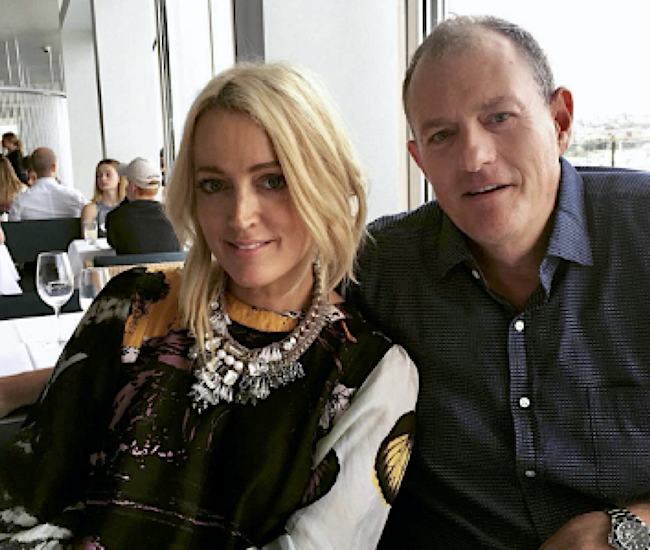“Audio has a place in the media landscape for a long time to come.”
Brad March rarely gives interviews.
But this week he talks to radioinfo’s Steve Ahern, reflecting on “an incredible ride” in his career and discussing the future of the audio industry.
Brad March has been a Program Director, Music Director, Announcer, Executive Producer, Consultant and Managing Director. During his time working in radio he nurtured the radio careers of Wendy Harmer, Andrew Denton, Tony Martin, Mick Molloy, Matt Tilley, Jamie Dunn, Amanda Keller and many other personalities.
Since leaving full time radio and beginning his talent management company, he has championed the likes of Jackie Henderson, Ben and Liam, Robin Bailey and The Chaser. He now combines the radio skills he has learned over the years and his eye for talent in the new role.
March began his radio journey at community radio stations Triple R and PBS FM Melbourne in the 1980s. His first commercial radio paid gig was at 6KA in Karratha WA (where Brendan Jones also started). “It was a mining town and about 8 hours flying time from my hometown Melbourne. I was 20 years old.”
After a brief stint doing Fox mid dawns, he then moved to 3WM, working six days a week doing the breakfast show and washing the manager’s car every Sunday morning. Ian Toull, who recently retired, was General Manager.
After 3WM, Brad moved to Sydney to work at 2Dayfm doing mid-dawns. “I was on from midnight to 6am and I had to record Sundays, so I was on air 7 days a week.”
He says his best regional job was in Cooma working at Kevin Blyton’s Capital Radio station 2XL, in his first job as a Program Director at the age of 23. A year later March was heading back to Sydney where Cherie Romaro gave him the job of Assistant Music Director/Program Director at 2Day.
Glenn Wheatley and Ian Grace handed March his first full time metro programming role as PD, the only job he was ever sacked from. At 27, he was the youngest PD in a metro market, before losing that job.
“I know what it’s like to be unemployed, it’s very hard, but you bounce back.”
When he was out of work, March decided he wanted to work for the best programming company is Australia and that was Austereo at the time.
“I was promoted to the role of Group PD and with people like Brian Ford and Jeff Allis, we took 2Day, Fox, B105, SAFM and Triple M to Number One and two every market, except Perth.”
“Content really was king under Greg and Paul Thompson. I take that same approach with talent now with Marchmedia. Talent and content always come first here. I should also mention my former Chairman Peter Harvie, he absolutely understood the importance of talent.”
Why did you leave Austereo?
“I wasn’t up for it, so resigned, plus I had few minor health issues at the time. I walked from Austereo with 2 years and more than $3 million dollars left on my contract.
“It was very challenging being a listed company with no growth (we had recently floated Austereo on the ASX)… enormous pressure, but I loved working for Village Roadshow and the Kirby brothers. John Kirby is still a great friend.”
You joined ARN after you left Austereo. What happened there?
The radio business is evolving, and Covid seems to have made that change process faster and tougher. What’s your view on where radio and audio media are heading?
“It’s hard to see how we can sustain three tier-one networks in the future, not everyone can be number one. One of them could become a cheaper, lower rating, operator like Jetstar or Virgin in the airline industry and like the Ten network in the 90’s which was very successful, the most profitable TV network at the time.
“It’s a shame to see the redundancies in radio, it really is, but as they say the cream rises to the top. The best will survive, just like any industry.
“Programming and content still needs to come first, then of course the revenue effort follows and you work to maximise the return. The main driver of the product in radio is the on-air talent and in particular, the breakfast shows which drive overall ratings. Faced with outside competition, talent now, even more so, is the great differentiator for radio.
“Radio is a brilliant medium and there are lots of opportunities. It’s a creative and fast paced medium that suits some people, but not others.
“Radio as we know it today and Audio formats yet to come in the future have plenty of life. People can’t be staring at a device screen 24/7. Audio has a place in the media landscape for a long time to come.”
What about Podcasting?
“There’s been some big deals in terms of dollars in the podcast space like Joe Rogan, Hamish and Andy, The Chaser, Matt and Alex, Tony Martin, Andrew Denton, The Briefing, etc
“It’s a great medium for marketing talent, building profile and also for broadcasters who may not ‘fit’ on radio at that time. With players like Apple, Amazon, iHeart, Spotify there will be great opportunities in future.”
Do you need to have an established profile to get an on air job, or can you build it?
“Some of our stations here, have a huge cumulative audience of 500k to a million a week, so on air promos are vital to building profile as well as socials, press and TV. Shows like Ben and Liam and Christian O’Connell and a few others are good examples and proof of that. Yes, you can build profile.”
Has your style changed much working on the other side of the fence?
“Show me a manager that’s never gotten into an argument and I’ll show you someone that’s not doing their job well. You have to have the talent’s back. Passion and belief is important in this field, so sometimes you fight, but at the end of the day no one dies. I’ve had stoushes with Duncan, Fitzy and Ollie for instance, but we are all mates now, I think.”
Did you hire someone by flying to an island in a light plane with a million dollars cash in a briefcase? Who was it?
Did you really organise an industrial crane to put a workers shed on the Fox FM world famous rooftop for talent to work in, because they had run out of space?
Working with Kyle and Jackie?
Is it true you had to start the generator to get one station on air?
Was one of your most successful station launches really planned on a park bench?
“And that’s not the only one, Jeff Allis and I planned the relaunch to CHR for SAFM, sitting on the grass in a park somewhere in Adelaide.”
Isn’t there someone you famously wined and dined, but had such a good time with, you forgot to offer them the job?
March says to be a good manager of talent you need to be one of their biggest fans:
“The listeners in the heartland, the suburbs are what count. That’s where the numbers are. Talent still want their creative output, but they also want it to be heard by the largest number of people as possible.”
Jane Kennedy credits March for her first break 30 years ago, when he introduced her to the guys from Working Dog and Mick Molloy. “He genuinely loves the business and has a great eye (and ear) for talent spotting.”
March says that watching Ben and Liam’s successful journey is one of the highlights of his career to date. They told radioinfo: “He signed us five years ago and took us from community radio to triple j to nova. He’s loyal and his passion for radio is infectious… Everyone knows him and more importantly people respect him. It’s a huge draw card to have him in your corner.”
And he points to Jackie Henderson’s continued success and the ARN deal where she got pay parity with Kyle as a genuine highlight. Jackie says March “cares for his clients” and that his “knowledge of the radio industry is incomparable – he’s been involved in it for over 30 years now.”
Have talent ever got annoyed with you suggesting they make changes or direction?
These characteristics are what March thinks makes a person great talent for radio.
• They need to be able to tell a story.
• They need to have something unique, a story, and a point of view.
• Creativity is everything, but without drive and determination, you might as well not bother, it’s very important.
MarchMedia just signed Jack Post, who March says is another example of those characteristics of great talent: “His work with Hamish and Andy and now with Christian O’Connell, has set him up for a brilliant career, having already worked alongside some of Australia’s best talent, best content directors and producers.”
As well as radio, March also works on tv and podcast deals for his small number of clients. Jackie O’s appearance on The Masked Singer was something brokered by March, and there has been “some really good podcast deals” with Nova, Acast, Spotify and Podcast One for people like The Chaser and Andrew Denton. Commercial deals are also important for talent, with some of his clients working with companies such as Uber, Red Cross, Junkee, Stan, Neds, Monkey Shoulder, Hello Fresh, Officeworks, News.com and others.
Any thoughts of ever returning to radio?
I had to drag the information for this story out of March, who is happy to talk about his clients, but not much about himself.
You don’t like doing interviews much do you?

Subscribe to the radioinfo flash briefing podcast on these platforms: Acast, Apple iTunes Podcasts, Podtail, Spotify, Google Podcasts, TuneIn, or wherever you get your podcasts.



